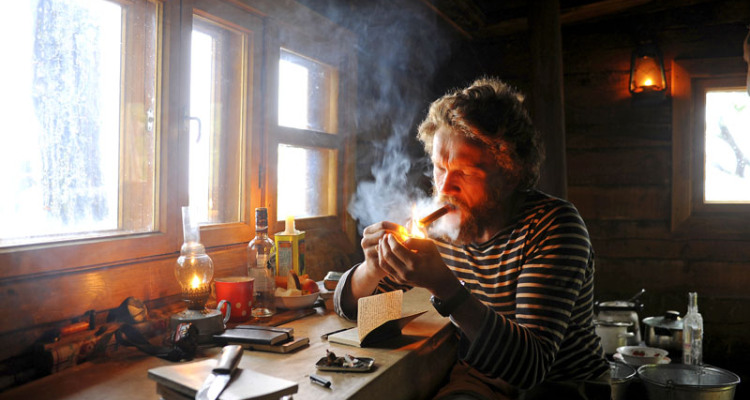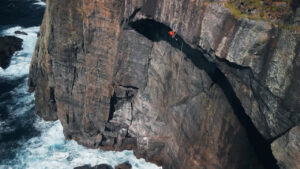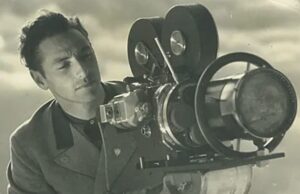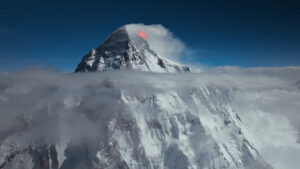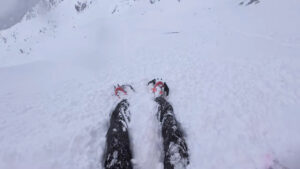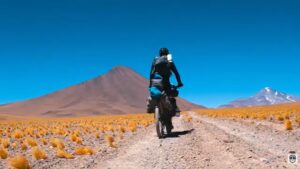In a world full of digital noise, Sylvain Tesson’s film Alone: 180 Days on Lake Baikal offers a refreshing escape. This documentary follows French adventurer and writer Tesson’s six-month retreat from civilization in a remote cabin on the shores of Lake Baikal, the world’s oldest and deepest freshwater lake.
Our journey with Tesson starts in February in the dead of Siberian winter, when Baikal is frozen solid and at its most alluring. As winter turns to summer, the film slowly and thoughtfully charts the changing landscape as the ice melts and the surrounding mountains and flora flourish.
Alongside his visual storytelling, Tesson’s honest and thoughtful narration draws you in, and his daily routines, such as fetching water and chopping wood, are oddly satisfying to watch.
To stave off cabin fever, the French writer split his days into two parts. In the morning, Tesson immersed himself in what he calls spiritual acts, such as reading, learning poetry, smoking, and of course, a great deal of staring thoughtfully out of the window. The afternoon is reserved for puritanical physical tasks such as cutting firewood or fetching water.

It must be morning. Photo: Sylvain Tesson
Vodka and cigars
It wasn’t entirely spartan, though. Tesson brought along a few luxuries, such as vodka and cigars, as treats. He seemed to enjoy the contrast between simple backcountry living and indulgence. After spending the day trekking through snow and fishing in -30°C temperatures, he later remarked, “It is wonderful to read Chinese poetry while smoking a Havana.”
Meeting the Locals
Tesson is alone most of the time but does meet some of the few locals along the shore. He takes long hikes on the ice and in the mountains to visit his neighbors. These brief encounters gently highlight the simple and resilient way of life many in Siberia still live.
One of Tesson’s encounters is with a couple who has manned a lone weather station for the past 20 years. Coincidentally, eight years after Tesson, a friend and I also ran into this same couple when trekking across the lake in winter. They were still at it. I suspect if Tesson returned to Baikal today, he might still find the couple there, unable to escape the allure of unspoiled isolation.
And that is where this film succeeds best, subtly conveying the solace and inspiration of remote wilderness living. As Tesson points out at one point, “Solitude is the only lover who will never leave you.”
